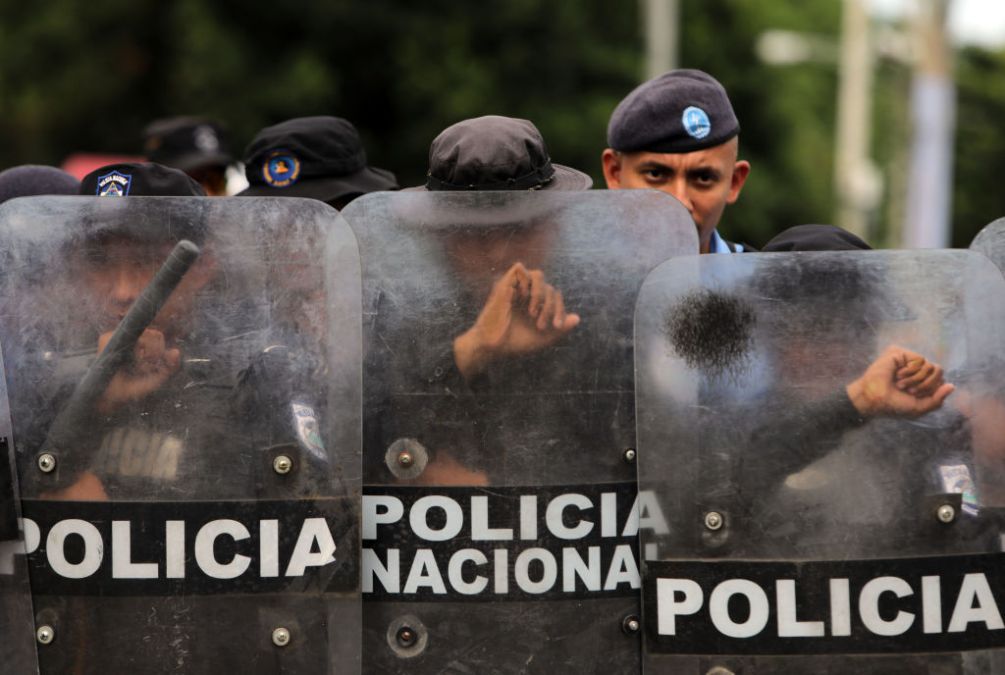Facebook accuses Nicaraguan government of running hundreds of fake accounts to target opposition

Nicaragua’s government has, for years, weaponized Facebook to try to discredit student protesters and boost official narratives, new findings show.
Facebook’s takedown of nearly 1,000 accounts, 140 pages, 24 groups and 363 Instagram accounts as part of an alleged troll farm run by the Nicaraguan government and the Sandinista National Liberation Front (FSLN) party represents “one of the most cross-government troll operations we’ve disrupted to date, with multiple state entities participating in this activity at once,” the company announced Monday.
The effort spanned multiple government institutions, including the Supreme Court and Nicaraguan Social Security Institute, the company said. It also involved a “complex network of media brands across Facebook, TikTok, Instagram, Twitter, YouTube, Blogspot and Telegram,” along with websites tied to news and political blogs.
The groups, pages, and Instagram accounts were popular: Roughly 585,000 accounts followed one or more of the pages; about 74,5000 accounts joined one or more of the groups, and about 125,000 accounts followed one or more of the Instagram accounts, the company reported. The activity dated back to 2018.
The company’s report claims that “although the operators posed as regular citizens of Nicaragua,” the investigation found that “much” of the activity “was operated from government-linked entities.”
The U.S. has accused the Nicaraguan government of rampant corruption and running a “sham election,” Reuters reported Monday. The U.S. sanctioned dozens of officials and their family members in in August in response to alleged crackdowns on opposition candidates.
Facebook regularly exposes and takes down similar efforts. In September, for instance, the company published details about an alleged Iranian Revolutionary Guard Corps. effort that included 93 accounts, 14 pages, 15 groups, and 194 Instagram accounts targeting Iran’s domestic population. In July, the company announced a campaign linked to the Myanmar military that included 79 accounts, 13 pages, eight groups, and 19 Instagram accounts.
The Nicaraguan government activity, disclosed as part of the company’s monthly coordinated inauthentic behavior reports, targeted domestic audiences in the country before it was detected by a Facebook investigation and as the result of public reporting.
“Operations run by a government to target its own citizens are particularly concerning when they combine deceptive techniques with the real-world power of a state,” the report’s authors wrote, noting that this operation is just the latest example of a “troubling trend,” with similar situations this year in Ethiopia, Uganda, Sudan, Thailand, and Azerbaijan.
Nicaraguan operators began by creating fake accounts in 2018 in response to student-led protests against the government. The operation began by denigrating government critics, but eventually evolved into posting and artificially amplifying praise about Nicaraguan officials, the research found, with the volume of posting and variety of media brands increasing over time, “likely an attempt to dominate the public space across the internet with pro-government messaging and drown out dissenting voices.”
The operation included fake profiles, media brands — some of which represented themselves as independent or as members of local communities — with presence across many social media platforms, blogs and websites, the researchers wrote. Media brands such as Molotov Digital and Siempre Mas Álla were built on Blogspot and Blogger, with a more sophisticated site called Redvolución appearing later on a WordPress site—along with YouTube, Facebook, Twitter, and Instagram accounts.
Publishing inauthentic messaging to blogs has been a method in other campaigns: A suspected Russian operation dubbed “Secondary Infektion,” for instance, or the “Guccifer 2.0” WordPress site used by alleged Russian military intelligence operatives to publish data stolen as part of various hack-and-leak campaigns.
Some of the brands accused government critics of the inauthentic coordinated behavior that the operation itself was engaged in, the researchers note. Accusing government critics of spreading “fake news,” and posting false information.
“Large or small, all brands carried the same broad messages,” the researchers wrote. “Support for the government which ran the operation and hostility to anyone who opposed it.”




